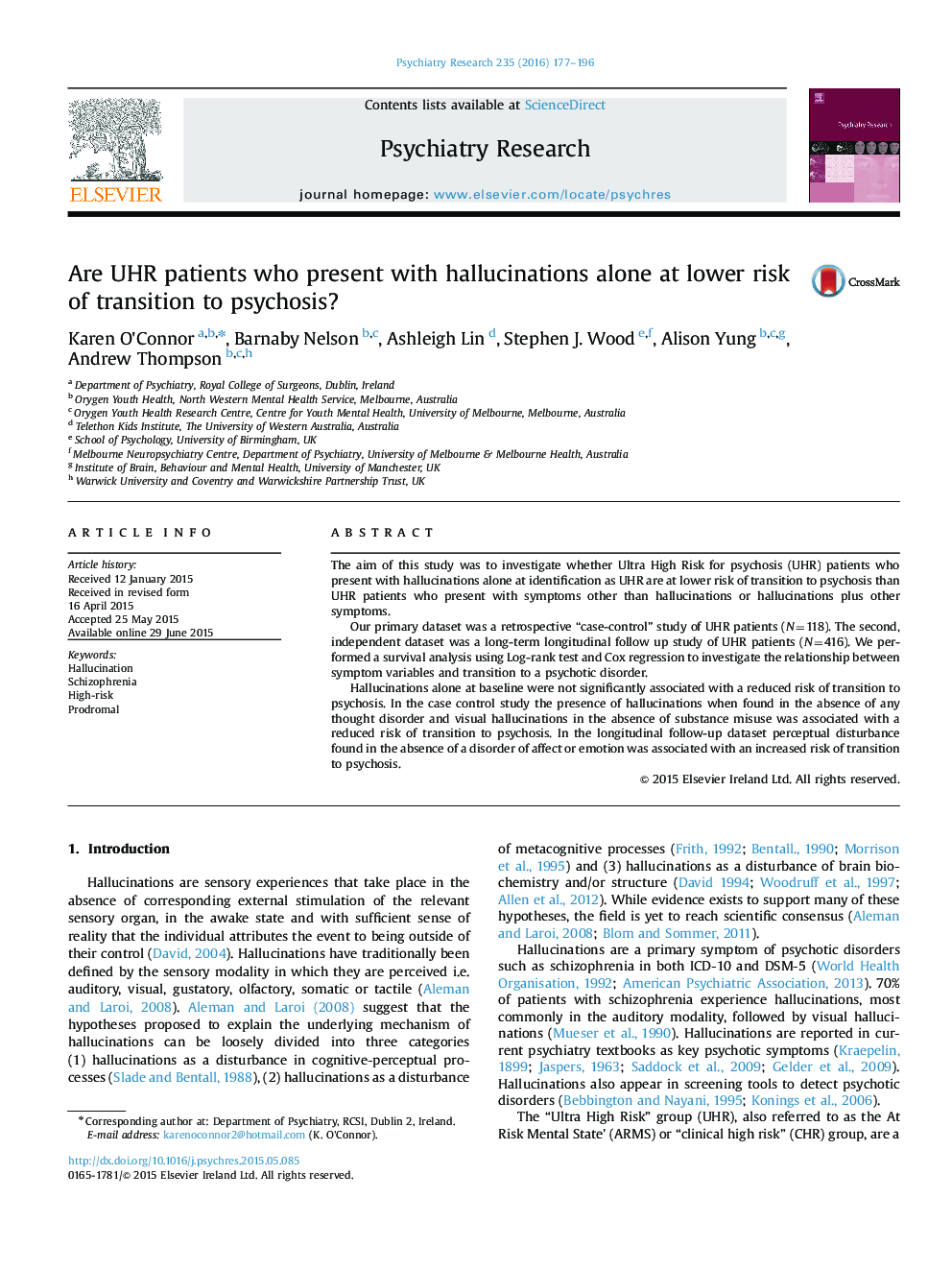| کد مقاله | کد نشریه | سال انتشار | مقاله انگلیسی | نسخه تمام متن |
|---|---|---|---|---|
| 333217 | 545907 | 2016 | 20 صفحه PDF | دانلود رایگان |
• Hallucinations alone at baseline were not significantly associated with a reduced risk of transition to psychosis.
• In the longitudinal follow-up dataset perceptual disturbance found in the absence of a disorder of affect or emotion was associated with an increased risk of transition to psychosis.
The aim of this study was to investigate whether Ultra High Risk for psychosis (UHR) patients who present with hallucinations alone at identification as UHR are at lower risk of transition to psychosis than UHR patients who present with symptoms other than hallucinations or hallucinations plus other symptoms.Our primary dataset was a retrospective “case-control” study of UHR patients (N=118). The second, independent dataset was a long-term longitudinal follow up study of UHR patients (N=416). We performed a survival analysis using Log-rank test and Cox regression to investigate the relationship between symptom variables and transition to a psychotic disorder.Hallucinations alone at baseline were not significantly associated with a reduced risk of transition to psychosis. In the case control study the presence of hallucinations when found in the absence of any thought disorder and visual hallucinations in the absence of substance misuse was associated with a reduced risk of transition to psychosis. In the longitudinal follow-up dataset perceptual disturbance found in the absence of a disorder of affect or emotion was associated with an increased risk of transition to psychosis.
Journal: Psychiatry Research - Volume 235, 30 January 2016, Pages 177–196
